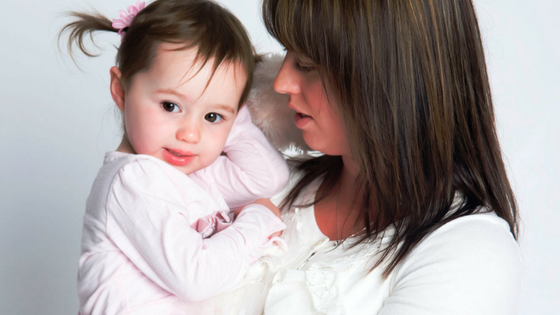Posted on August 24, 2018 by
Mental Health

Share
Last week, a friend and colleague who is a young mom, shared with me her frustrations of the previous day in taking her toddler to and picking him up from daycare.
She related that her son began a tantrum as she dressed him and readied him to go to the car and continued his complaints all the way there. He clung to her as she tried to leave him with the trusted childcare worker. When she arrived to pick him up, he then began with a tantrum again, not wanting to leave daycare and return home with her.
My friend’s question to me was “is something wrong with my child or is this normal?” My response was “NORMAL”!
Her toddler’s behavior is the acting out of what most of us feel when we go through transitions in our own daily lives. We resist change. We seek the familiar. We stress about the unknown and in between.
Richard B. Joelson, DSW writes that, “Life transitions are challenging because they force us to let go of the familiar and face the future with a feeling of vulnerability.” He goes on to say, “We live in a culture that has taught us to be very uncomfortable with uncertainty, so we are anxious when our lives are disrupted. On the positive side, these transitions give us a chance to learn about our strengths and to explore what we really want out of life. This time of reflection can result in a sense of renewal, stability, and a new equilibrium.
As my friend’s toddler becomes more confident of his abilities to navigate the uncertainty of his world, he will likely develop more confidence and trust in himself; confidence and trust that is first transmitted to him by his parents and caregivers.
As adults we experience minor transitions daily, beginning with getting out of our warm cozy bed in the morning and beginning the process of facing another day. We also experience major transitions in our lives, some within our control and many outside of our control. These may include moving to a new home or city, changing jobs, marriage, the death of a loved one, retirement, or decline in health to name but a few.
As Joelson related, these changes in our lives can be paralyzing or can be opportunities to learn about or develop our strengths. To allow this to happen we have to be willing to tolerate discomfort and a certain amount of fear and anxiety.
A few of the tips offered by Joelson include the following:
Especially important to remember is that despite feeling very alone in transition times, you are not alone. The most important and enduring comfort we know is that Jesus is with us. Multiple passages in his word confirm this.
Joshua 1:9 Have I not commanded you? Be strong and courageous. Do not be frightened, and do not be dismayed, for the Lord your God is with you wherever you go.”
Jeremiah 29:11 For I know the plans I have for you, declares the Lord, plans for welfare and not for evil, to give you a future and a hope.
Deuteronomy 31:8 It is the Lord who goes before you. He will be with you; he will not leave you or forsake you. Do not fear or be dismayed.”
My friend’s toddler left the safe and loving hands of his mother to the safe and loving hands of his caregiver, and then back again, just as Jesus safely delivers us from one place in our lives to another.
The counselors at Lutheran Family Service are experts in assisting clients with the struggles of transition and will bring their clinical knowledge and faith to accompany you on your journey through unknown territory.
Toni Larson, LISW – Clinical Social Worker with Lutheran Family Service
More posts about Mental Health